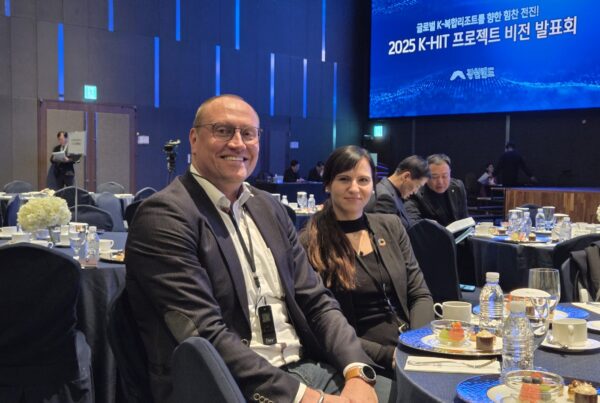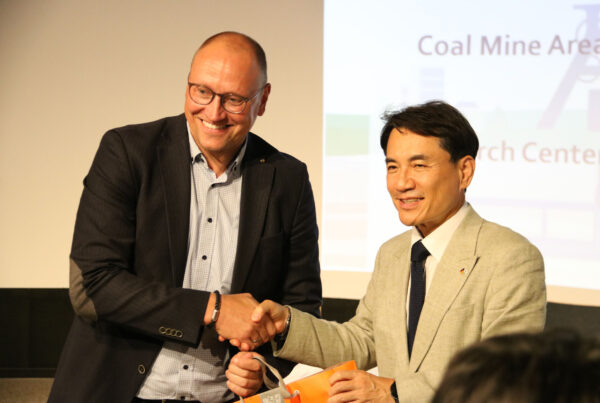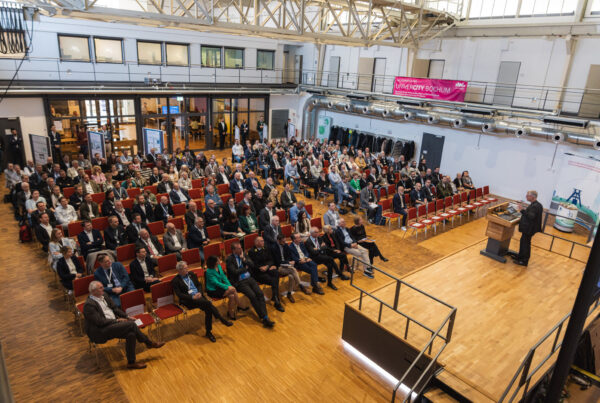10 x 10 centimeters, 24 colorful pages, plenty of fun and lots of new insights. That is what every child knows and loves about the classic Pixi book – one of the most successful picture book series of all time, with over 2,000 different titles. How can both science and adventure be conveyed in such a format? This is what the Research Center of Post-Mining at the Technische Hochschule Georg Agricola, University, put to the test – with success: In the new story “The Post-Mining Detectives”, the three friends Ruby, Jade and Peter are on the trail of mining consequences. In places where coal was once extracted, they conduct their own exciting investigations: How is the environment faring? What is happening to the water? And what are those suspicious people doing at the headframe?
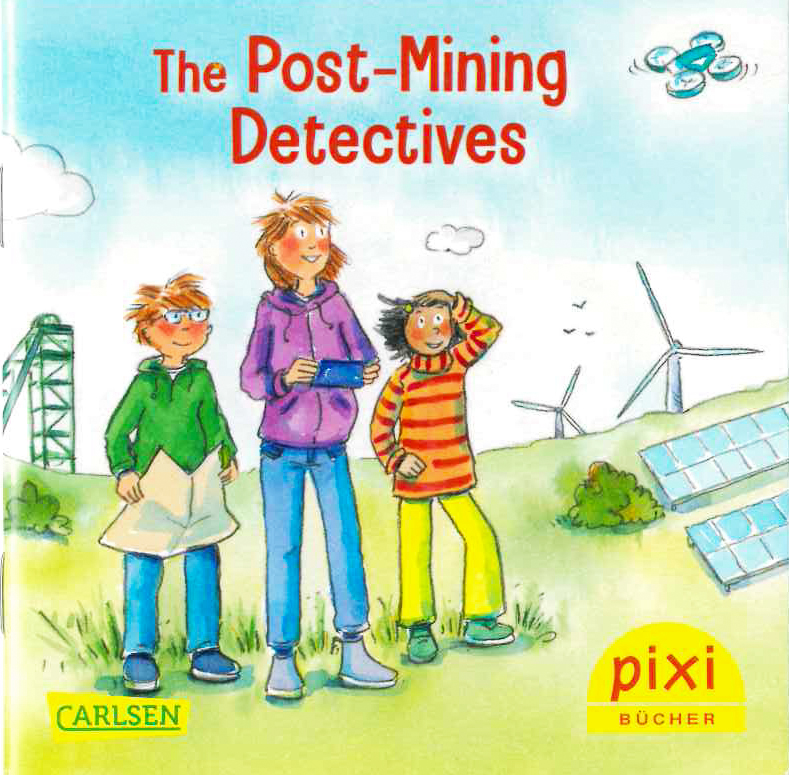
On the hunt between mining heap and headframe: In the Pixi book, the post-mining detectives Ruby, Jade and Peter follow the marks mining left behind.
© Dorothea Tust (illustration) & Anke Peterson (text), 2022 Carlsen K – die Agentur für Kindermedien, Carlsen Verlag GmbH
“Mining leaves us with tasks that are very diverse and pose challenges to us scientists time and again,” says Prof. Dr. Tobias Rudolph, geologist at the Research Center for Post-Mining. “We use drones and satellites to monitor the environment, test water quality or conduct research to contribute to a new and intelligent use of old mine sites.” In the Research Center of Post-Mining’s Pixi book, children can explore all these challenges for the future and become budding researchers themselves. “Many of us live in regions that were shaped by mining but no longer have a personal connection to the former industry. We want to show all the spaces where the consequences of mining can be discovered and illustrate why we need to deal with the aftermath actively and in the long term,” explains Prof. Rudolph, who has two young sons himself.
“Transfer from science into society is one of the key tasks universities have. With the Pixi book on post-mining, THGA has achieved this in a unique way,” says Bärbel Bergerhoff-Wodopia, board member of the RAG-Stiftung, which funded the book project. “We are delighted that even the youngest members of our society can learn more about post-mining reading the Pixi book. Most of them only know about mining from museums. But post-mining is a very topical issue, which deals with questions of sustainability. We should therefore promote a better understanding of the topic. Who knows, maybe one of the young readers will turn out to be a post-mining engineer of the future.”
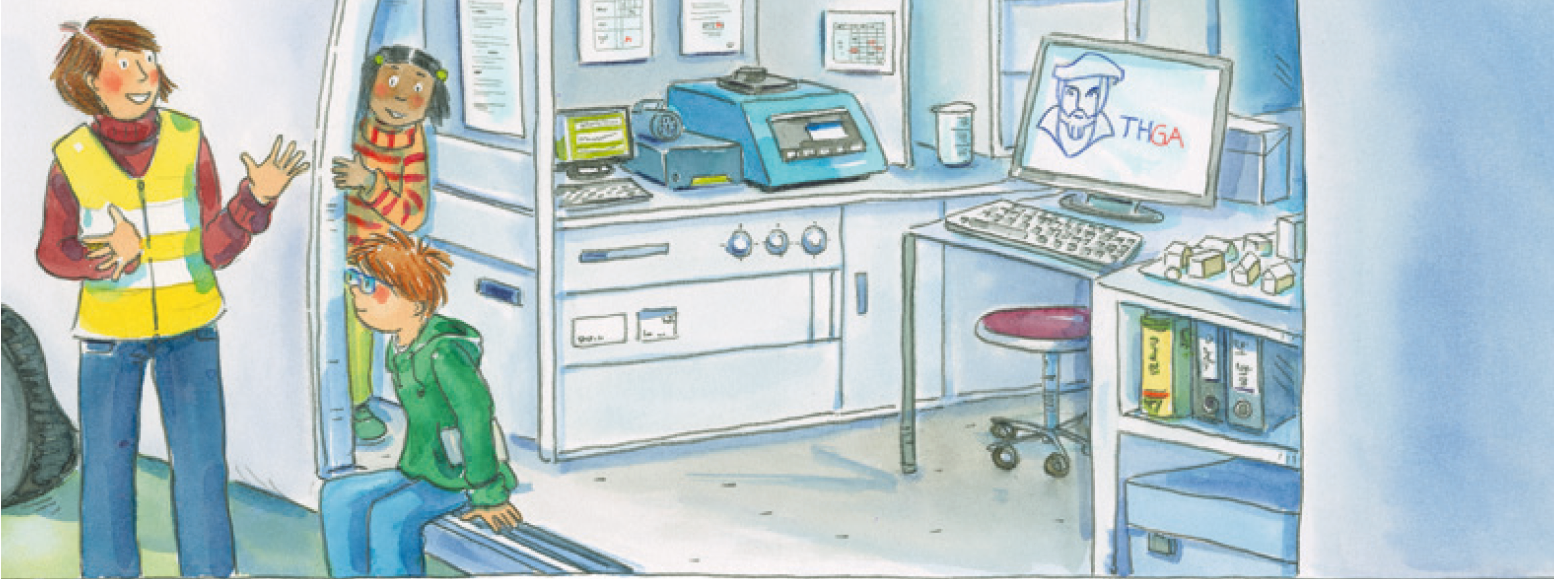
Hands-on science: There's a lot to discover in the mobile laboratory of the Research Center of Post-Mining. © Dorothea Tust (illustration) & Anke Peterson (text), 2022 Carlsen K – die Agentur für Kindermedien, Carlsen Verlag GmbH
Interested?
The Pixi book is now available for free at Technische Hochschule Georg Agricola, University, and at Deutsches Bergbau Museum Bochum. You can also find it at many other public places of industrial heritage in the Ruhr region.
Pixi book in English
Der Nachbergbau ist international eine Herausforderung. Darum gibt es das Pixi-Buch des Forschungszentrums Nachbergbau jetzt auch in englischer Sprache. Wenn Sie Interesse an den „Post-Mining-Detectives“ haben, schreiben Sie ein E-Mail an nachbergbau@thga.de.


